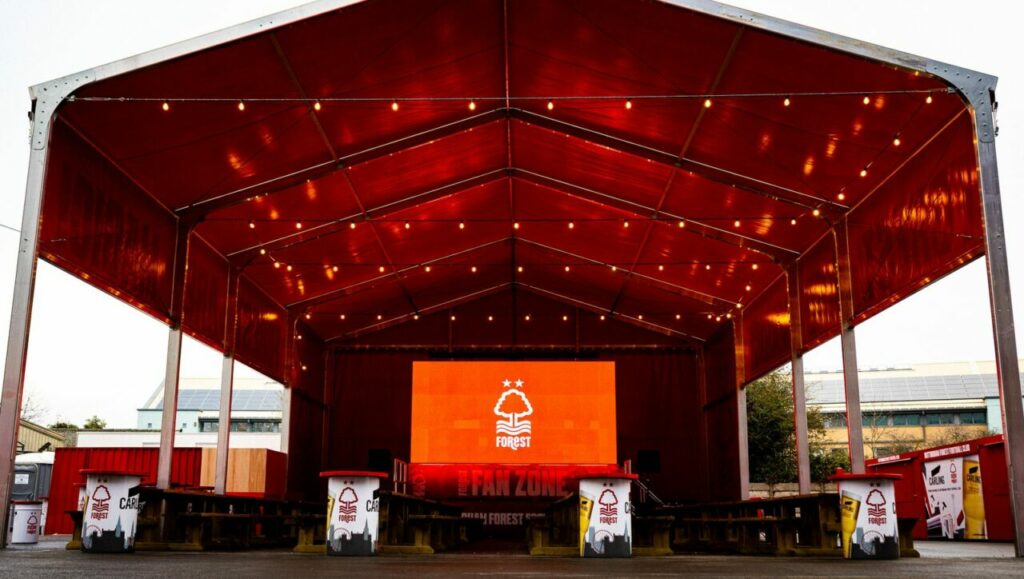
Nottingham Forest FC has opened a new carbon-free ‘Fan Zone’, built in collaboration with the club’s sustainability partner energy provider E.ON.
The site features a flexible solar canopy roof over the main stage, where a giant screen is stationed and was opened on 2 December 2023 for the East-Midlands-based club’s match against Everton FC. The club confirmed it was able to accommodate 1,000 supporters.
The area is expected to generate and store roughly 12,000kWh of energy per year which is more than the facility requires to run.
Scott Somerville, chief marketing officer at E.ON UK said: “This is such a brilliant example of how sustainable choices can further enhance the fan-first thinking already in place the club.”
Nottingham Forest chairman Tom Cartledge added: “The Fan Zone development is just the first of many projects we plan to deliver over the coming months as we help realise his vision for a truly fan-focused and sustainable future for our Club.”
A steady climb to sustainability in UK sport
The world of sport is rarely provided government support for furthering sustainability, as the funding is more often allocated to reducing household energy bills, incentivising EV usage and lowering the nation’s carbon footprint.
As a result, however, individual groups organisations are left on their own to take individual initiative. A key example of this is the Forest Green Rovers, based in Gloucestershire, who caught the eye of the United Nations as the ‘World’s Greenest Football Club’.
As reported by Solar Power Portal back in 2012, the club installed a 46.92kW photovoltaic system onto a terrace roof consisting of 184 solar panels.
Alongside other low-carbon technologies, these changes resulted in a 42% decrease in carbon footprint per spectator from the 2011/12 season and a 14.7% decrease in waste in the 2017/18 season.
London’s iconic 66,000 seater Olympic Stadium, home to Premier League side West Ham United, was believed to be exploring options to install a solar PV membrane on its roof in a bid to reduce its carbon footprint.
Arsenal also signed a deal with energy supplier Octopus Energy in 2017 to power the Emirates Stadium in part via solar power.

